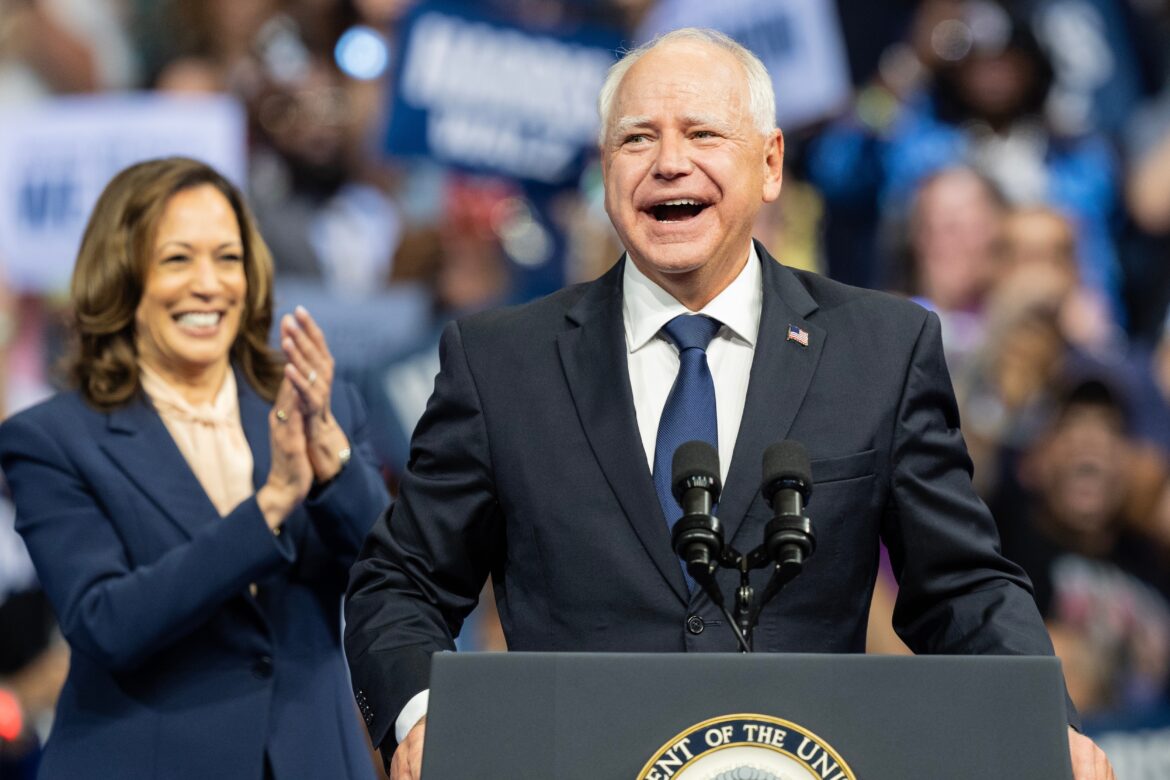Yesterday, Kamala Harris announced Minnesota Governor Tim Walz as her running mate for Vice President sparking discussions about the future of education and social welfare. Walz’s candidacy as VP brings with it intriguing possibilities for the food system, particularly in the realm of universal school meals. Walz, who has a track record of advocating for educational equity and welfare reform, could significantly influence national conversation and policy on school nutrition.
Walz has a robust history of engagement on educational issues. As a former high school teacher and now as Minnesota’s governor, Walz has consistently prioritized education in his policy agenda. His administration has supported measures aimed at enhancing public education, including increased funding for schools and initiatives to reduce educational disparities. Walz’s experience in education has provided him with a deep understanding of the challenges schools face, from funding issues to student welfare concerns.
Universal Free School Meals
Universal free school meals, a policy providing free breakfast and lunch to all students regardless of their family’s income, has gained traction in recent years. Universal school meals emerged as a critical support system during the COVID-19 pandemic, addressing both food insecurity and educational disruption. As the pandemic forced schools to close or switch to remote learning, many families faced economic hardship, making access to nutritious food a significant concern. By providing free meals to all students, universal meal programs ensured that children could still receive balanced nutrition despite their changing learning environments. This approach not only helped alleviate the burden on struggling families but also supported students’ overall well-being and ability to focus on their studies, highlighting the crucial role of school meal programs in safeguarding public health and educational equity during crises.
However, despite growing support, Congress failed to extend the COVID-era universal school meal waivers it approved in the early months of the pandemic and universal school meals came to an end nationwide on June 30, 2022. The program faced hurdles such as funding constraints and logistical challenges. Federal and state governments play critical roles in determining the availability and scope of these programs, and the endorsement of key political figures can have a substantial impact on their implementation and expansion.
(For a list of states who have passed Universal School Meals see HERE.)
Walz’s Potential Impact on Universal School Meals
As governor of Minnesota, Walz signed a bill making it the fourth state in the country to provide breakfasts and lunches at no charge to students. Speaking about the legislation, he stated, “This is one piece of that puzzle in reducing both childhood poverty and hunger insecurity.”
Should Harris and Walz win the election, his role as Vice President and his potential influence on universal school meals could be profound. Here’s how Walz’s involvement might shape the future of school nutrition and food access:
- Advocacy and Policy Development: Walz’s background in education and agriculture from working on farms equips him with the knowledge and passion to champion policies that support universal school meals. As Vice President, he could use his platform to advocate for expanded federal support and funding for these programs. His advocacy could help build bipartisan support and push for legislative action that ensures all students have access to nutritious meals.
- Collaboration with State and Local Leaders: Walz’s experience working with state and local education systems could facilitate more effective collaboration between federal and local governments. This could lead to more tailored approaches that address specific regional needs and ensure that universal meal programs are effectively implemented across diverse communities.
- Leveraging Executive Influence: While the Vice President’s role is often seen as more ceremonial, the position still holds significant influence. Walz could use his position to raise awareness about the importance of universal school meals, engage in public campaigns, and work with the Department of Agriculture and other relevant agencies to streamline the implementation of these programs.
- Addressing Funding Challenges: One of the major obstacles to universal school meals is securing adequate funding. Walz’s experience in budget management and his understanding of state and federal financial systems could be instrumental in advocating for the necessary resources. His role could include pushing for increased funding in the federal budget and exploring innovative funding solutions.
Tim Walz’s potential role as Vice President could significantly impact the future of universal school meals in the United States. With his background in education and his commitment to addressing nutrition disparities, Walz has the potential to advocate effectively for policies that ensure every child has access to nutritious meals. While challenges remain, his leadership could pave the way for meaningful advancements in school nutrition and contribute to a more equitable educational environment for all students.


